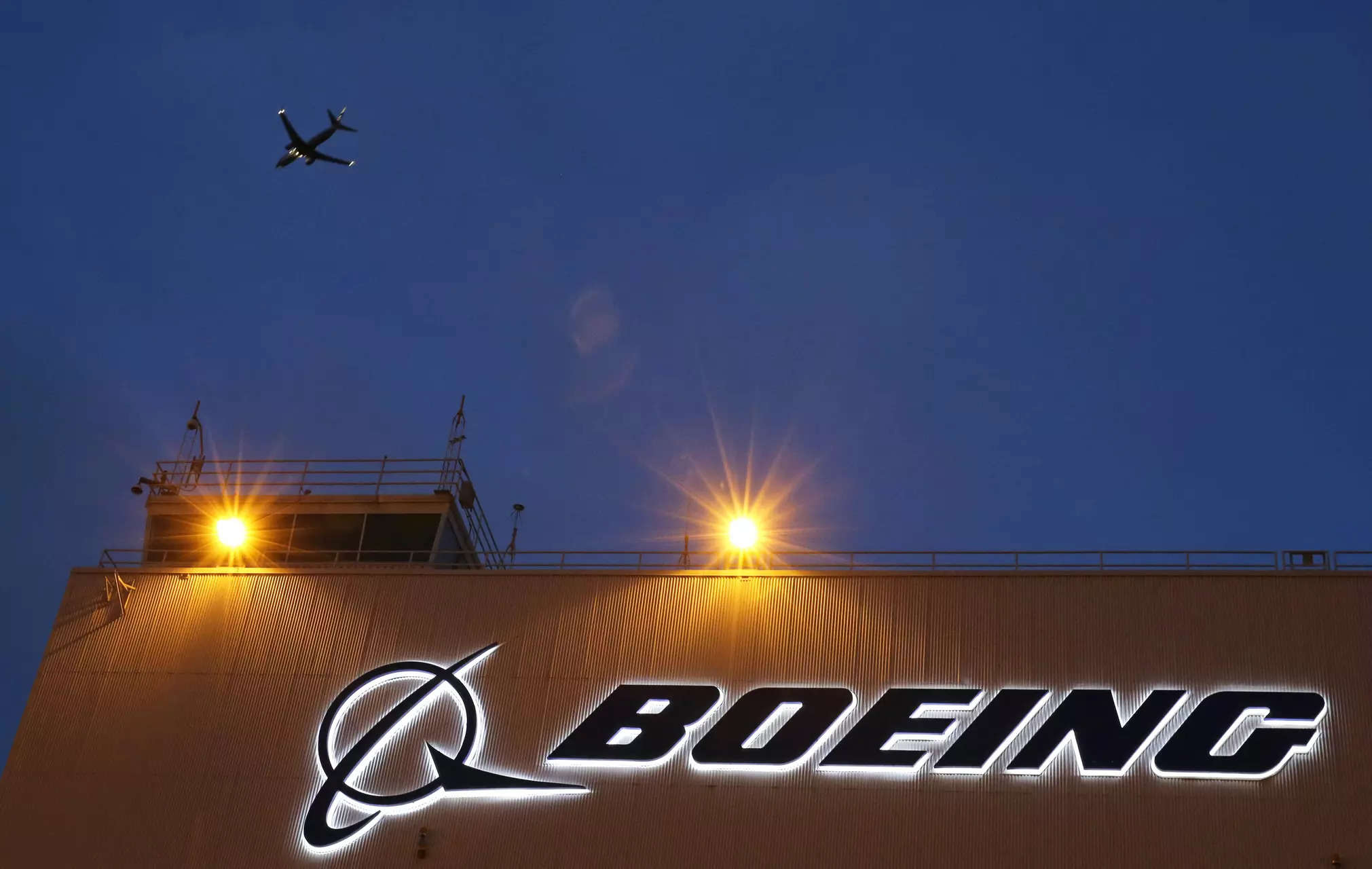Boeing Co likely didn’t deliver any 777 freighters during the first quarter, adding to its cash woes at a time when 737 Max handovers are sluggish amid heightened government scrutiny.
The planemaker as of last week had 11 newly built “gliders” — an industry term for finished aircraft that are lacking engines — stashed in and around its factory in Everett, Washington, Jefferies analyst Sheila Kahyaoglu said in an April 5 report citing data from Aero Analysis Partners/AIR.
The cash-flow drag from 11 newly built but undelivered 777 freighters would translate to roughly $1.16 billion, according to George Ferguson, analyst with Bloomberg Intelligence. He estimates each aircraft not delivered represents a cash outflow of about $105 million. Boeing’s cash use is a growing concern for investors after the planemaker said last month that it expects to burn through $4 billion or more during the first quarter.
The bottleneck highlights how Boeing’s manufacturing challenges extend beyond its cash-cow 737 Max jet. The aerospace giant is working to bring its factories and supply chain back to a steady cadence under scrutiny from US regulators following a series of quality lapses.
Boeing and the 777 freighter’s engine manufacturer, General Electric Co., declined to discuss specific details around the delivery hiccup.
“As the aviation industry continues to manage through supply chain constraints, we are working closely with our suppliers and customers on the timing of their deliveries,” Boeing said.
A GE spokesperson said the company is coordinating GE90 engine production and delivery schedules with Boeing and airline customers.
Like Boeing and Airbus SE, jet-engine manufacturers are also grappling with labor turnover and parts shortages that have persisted since the pandemic eased. GE executives in early March said about 80% of its delivery shortfalls were tied to constraints at suppliers.
Six 777 freighters were built in March but not delivered, Kahyaoglu said, after the planemaker handed over none to customers during the first two months of this year.
Cirium, which tracks aircraft production, shows that only one of Boeing’s largest cargo-hauling planes took its first factory flight during the quarter. The freighter, ordered by Taiwan’s EVA Air, took off for Taipei on April 8, according to FlightRadar24 data. Other airlines waiting for the aircraft include Air China Cargo, Qatar Airways and Lufthansa Cargo.
Boeing is expected to reveal the lack of 777 deliveries on Tuesday, when it announces its orders and deliveries total for March. Airbus also reports its own tallies for the month that same day.
Boeing will likely report that it delivered 30 jets in March, including 24 of its 737 Max aircraft, Kahyaoglu said.
The planemaker as of last week had 11 newly built “gliders” — an industry term for finished aircraft that are lacking engines — stashed in and around its factory in Everett, Washington, Jefferies analyst Sheila Kahyaoglu said in an April 5 report citing data from Aero Analysis Partners/AIR.
The cash-flow drag from 11 newly built but undelivered 777 freighters would translate to roughly $1.16 billion, according to George Ferguson, analyst with Bloomberg Intelligence. He estimates each aircraft not delivered represents a cash outflow of about $105 million. Boeing’s cash use is a growing concern for investors after the planemaker said last month that it expects to burn through $4 billion or more during the first quarter.
The bottleneck highlights how Boeing’s manufacturing challenges extend beyond its cash-cow 737 Max jet. The aerospace giant is working to bring its factories and supply chain back to a steady cadence under scrutiny from US regulators following a series of quality lapses.
Boeing and the 777 freighter’s engine manufacturer, General Electric Co., declined to discuss specific details around the delivery hiccup.
“As the aviation industry continues to manage through supply chain constraints, we are working closely with our suppliers and customers on the timing of their deliveries,” Boeing said.
A GE spokesperson said the company is coordinating GE90 engine production and delivery schedules with Boeing and airline customers.
Like Boeing and Airbus SE, jet-engine manufacturers are also grappling with labor turnover and parts shortages that have persisted since the pandemic eased. GE executives in early March said about 80% of its delivery shortfalls were tied to constraints at suppliers.
Six 777 freighters were built in March but not delivered, Kahyaoglu said, after the planemaker handed over none to customers during the first two months of this year.
Cirium, which tracks aircraft production, shows that only one of Boeing’s largest cargo-hauling planes took its first factory flight during the quarter. The freighter, ordered by Taiwan’s EVA Air, took off for Taipei on April 8, according to FlightRadar24 data. Other airlines waiting for the aircraft include Air China Cargo, Qatar Airways and Lufthansa Cargo.
Boeing is expected to reveal the lack of 777 deliveries on Tuesday, when it announces its orders and deliveries total for March. Airbus also reports its own tallies for the month that same day.
Boeing will likely report that it delivered 30 jets in March, including 24 of its 737 Max aircraft, Kahyaoglu said.


